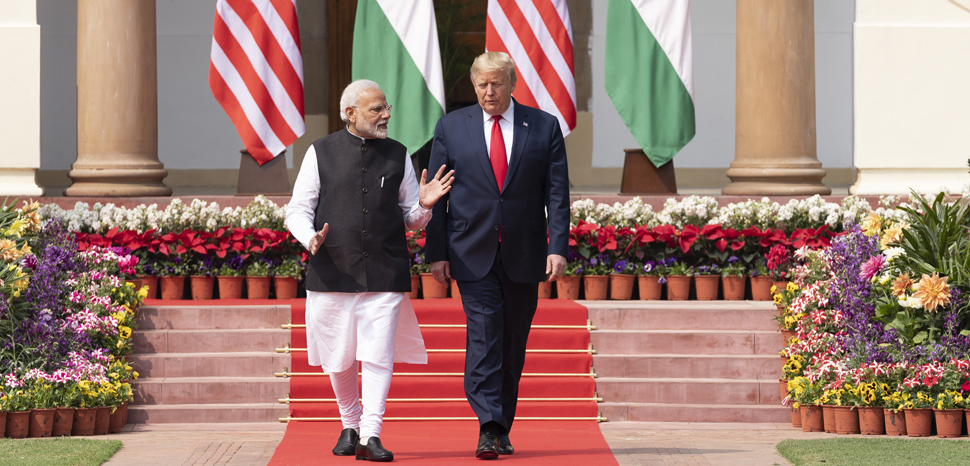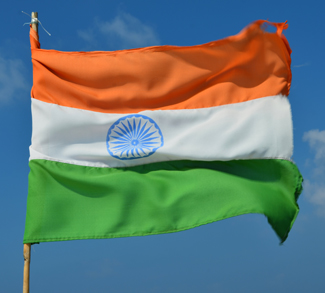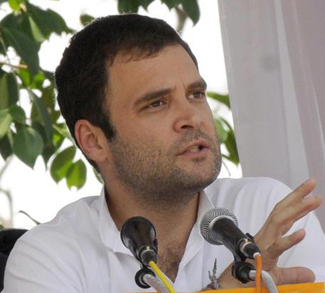Arguably, on the conclusion of Trump’s two-day state visit to India toward the end of last month, he has nothing substantial to offer back at home. At a larger level, rather than maintaining continuity in India-US relations there has not been anything particularly upbeat about Trump’s India visit. In fact, the major talking points of his visit did not take place. The much-anticipated trade deal remains yet to be materialized, hopefully through further rounds of negations and diplomacy. Similarly, reports that Trump might invoke issues related to India-Pakistan tensions, the Kashmir dispute, and the Citizens Amendment Act (CAA), which are considered deeply contentious in India, found no mention. Instead, Trump discernibly steered clear of anything that irks Modi. Not only did he avoid commenting on the controversial policies of the Indian government, but he also heaped immense praise on India’s religious harmony, which ironically contrasted the reality as the capital city of Delhi was embroiled in communal conflict at the time of his visit.
This is even despairingly ironic due to the fact that, while the U.S. has been keen on projecting its democratic credentials and maintaining its leadership status as the champion of liberal values and human rights in the global stage, Trump cautiously turned a blind eye to the communal conflict taking place in Delhi during his visit. Rather, Trump was at ease showering praise on Modi for his religious freedom, a much sought-after validation that would satisfy his counterpart. However, there are logical reasons to suggest that this does not constitute a prudent foreign policy that is in the interest of the U.S.
For one thing, it has been clear from the gala event and the megalomaniac performances of the leaders of the two largest democracies in the world that, it was not a momentary paradoxical blunder but rather a scripted enactment of quid pro quo diplomacy at an intensely personal level. The fact of the matter is, this is penned and enacted primarily at the leadership level and meant, purportedly, to project the Trump-Modi meeting as a summit that goes beyond the usual lexicon of ‘India-US.’ There is, however, a lack of any substance to suggest any major benefit for US interests.
Why Trump’s backing for Modi’s Policies will not augur well for the U.S.
Endorsement of Modi’s policies despite the domestic difficulties that followed can, in the absence of a much-need course correction, potentially run the risk of restricting India’s ability to play a greater role in international relations. India’s aggressive pursuit of domestic politics has been sidelining international relations. This crisis in India’s foreign policy needs immediate attention and urgency to prevent further political and economic challenges and diplomatic fallout.
Geopolitically, this is likely to have wider implications for US interests in South Asia and the Indo-Pacific region. Because India’s ominous inability to manage international affairs in the event of rising domestic political challenges will fly in the face of the U.S. policy of positioning India as the countervail to China in the region. Bharat Karnad, professor of national security studies at the Centre for Policy Research in New Delhi, has rightly pointed out that “Modi will not be able to realize his strategic objective of getting India to emerge as a principal rival to China on the Asian, leave alone the world, stage if he also creates an illiberal state and society at home.” In this regard, Modi’s discernible emphasis on domestic constituencies in his second term and the seeming imprudent disregard for maintaining India’s international status could be a striking indication of an incipient tendency towards this direction.
On the economic front, such absolute promotion of the status quo of controversial policies, with further impetus from Trump’s endorsement, is only going to foster the right-wing populist-nationalist government to underplay the potential of any economic fallout as they try to consolidate power and reconstitute the idea of India as a majoritarian Hindu Republic. Recent policies like demonetization which is plausibly conceived and implemented as a political gambit than as an economic decision, coupled with the social and political chaos of CAA, NRC, and Kashmir issue impacting the Indian economy, has exposed how domestic political concerns are overlooking economic rationality under the Modi government.
Moreover, this domestic economic impact has led to a downgrade in the global growth rate. Yet, the Indian government’s sheer determination to continue unabated with its policies despite such economic consequences is telling. Of course, furthering the chances of a deep global slowdown and its implications for international financial stability is not in the interest of the U.S. Therefore, what Trump actually achieved was to append greater risk to a U.S. economy which is already reeling from the trade war and growing anticipation of a coronavirus outbreak.
Strategically, the promotion of liberal values and democracy is incredibly important for international peace and serves U.S. interests more than any country in the globe. As for the U.S., liberal democracies are promising tools to advance her economic and security interests. One of the major challenges in this regard is terrorism and extremist violence. Recently there has been an increase in extremist violence and acts of terror from the far right. In India, the rise of majoritarian politics and the creation of fear in the minority – especially the Muslim community – through execution and lynching in different parts of the country can potentially make them vulnerable and easy-prey to Islamic terror groups like ISIS.
Needless to say that terrorism can spill out into other countries as well as regions and can even target countries that do not have any history of terrorism or deeply contentious social and religious issues. A recent attack in New Zealand is illustrative. In such a scenario, the downside of Trump’s heaping praise on Modi, despite the continuous rise of religious intolerance in India, comes across as endorsement and certainly relieves the government of India, to a great extent, of any possible major international pressure. And this seemed to have rendered the government tremendous fillip to its further pursuit of controversial policies.
On the whole, these are some important aspects that Trump did not balance effectively against Modi. A cautionary mention against the religious atrocities and social chaos in India would have had its own strategic merit. And this was not without any precedent, as Obama has publicly criticized the Modi government on his return to the U.S. after a visit to India in 2015, yet relations between the U.S. and India remained unaffected; in fact, they improved.



